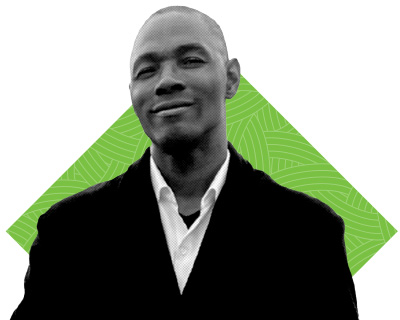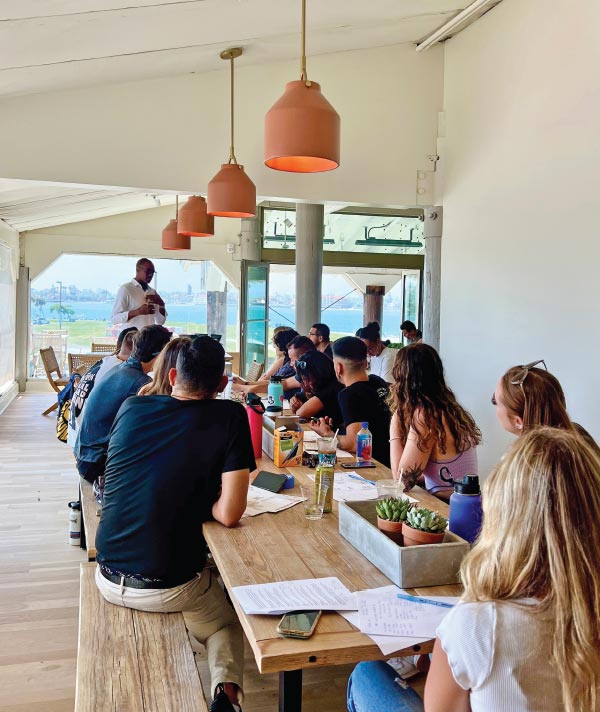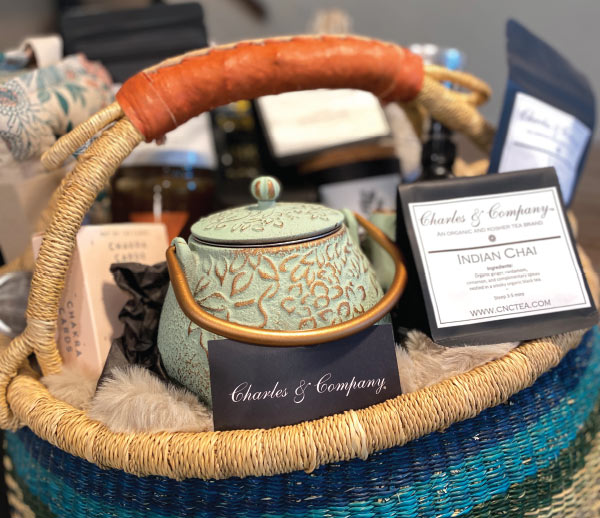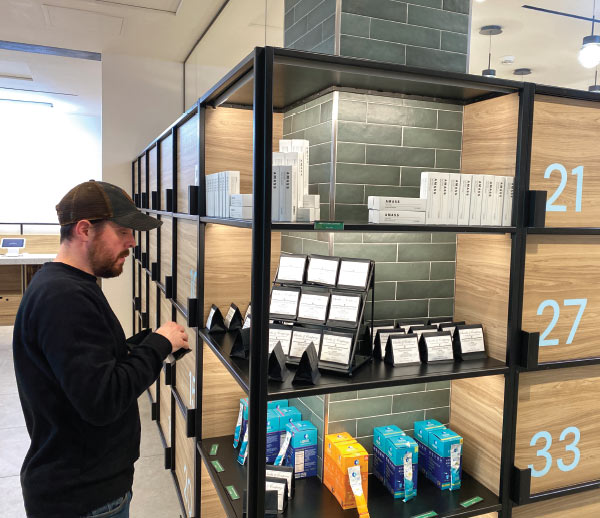Charles & Company
Location: Long Beach, California
Industry: Manufacturing
Website: cnctea.com
Leadership: BIPOC-owned
ICIC Program: ICCC Dallas 2014, San Diego 2018, San Diego 2020, and San Diego 2021

Overcoming
Lawrence Charles emerged from homelessness to become an international model and build an iconic tea brand embraced by Hollywood and the Royals
There was a time when Lawrence Charles was as far from being a CEO as one could imagine.
He and his family struggled with being houseless in Canton, Ohio, when he was young, a time he recalls vividly. He remembers carrying all his belongings in a trash bag as his family searched for a shelter, as well as moving from apartment to apartment with his grandparents.
“I tried to understand why my grandparents kept everything in boxes. They never unpacked,” he remembers. “That was a powerless situation.”
But Charles was determined to change his situation. He lived in a homeless shelter while putting himself through the Pittsburgh Institute of Art. It was during this moment of challenge that he accepted a part-time modeling gig for a local department store, which led to a big break for him.
A New York City fashion director saw his photo and invited him to come to New York to do more modeling. Soon, he was a Tommy Hilfiger model traveling the world, working with a major international public relations firm and networking with industry power players.

“I was able to get through college and I was fortunate I had an opportunity in New York City as a model,” he remembers. “That’s where I learned some of the fundamental aspects of business. Being a model, you fly all over the world and you’re working with these major PR firms and you see how they’re making these really interesting decisions. I had to uniquely find my own way.”
He had an entrepreneurial spirit and that led him to rely on himself to create his own unique pathway to success.
“My gift was to get into business,” he says. “What that meant was being able to be well-connected, well-capitalized, and to build a legacy. That’s how I look at it.”
“My gift was to get into business,” he says. “What that meant was being able to be well-connected, well-capitalized, and to build a legacy. That’s how I look at it.”
Lawrence Charles, FOUNDER & CEO, CHARLES & COMPANY
Opportunity Knocks
While modeling with Hilfiger and living in New York, he began frequenting the city’s tea houses in Greenwich Village and Harlem, embracing the beverage’s health and wellness benefits. He became a tea connoisseur and realized the power of tea, and the marketability, especially among societal elites in the modeling, entertainment, and business world.
He relocated to Los Angeles and launched Charles & Company, an organic and kosher tea brewing company that ethically sources its ingredients from across the globe. He began selling tea door-to-door, riding his bike through Santa Monica with a backpack stuffed with his new products.
Soon, he was hosting celebrity backyard tea parties, pop-ups at high-end restaurants in Malibu and Beverly Hills, and built a following that included celebrity fans like Sir Anthony Hopkins and even members of the British Royal Family. Celebrity chefs and business executives embraced the fledgling company and soon his tea was a staple in luxury hospitality and culinary institutions, including Malibu Farm, Nobu Hotels, and the Four Seasons.
“Although I started with tea, the goal was never just a tea house. It was to use tea as a disruptor,” Charles explains. “The core part was building out hospitality, building out restaurants, resorts, hotels, and that core piece allowed for the story to happen. Now that we’ve been able to kind of get that core part down, now we’re starting to build out the business.”


“ICIC is incredibly important to me,” they’ve been absolutely incredible with information. To see someone like Steven Rogers, a Harvard professor who looks like me, has been incredible.”
Lawrence Charles, FOUNDER & CEO, CHARLES & COMPANY
The ICIC Difference
And that’s where ICIC came in. He heard about the program through the mayor’s office in San Diego and was impressed by the roster of professors available to entrepreneurs like him, including acclaimed Black business professors like Steven Rogers from Harvard.
“ICIC is incredibly important to me,” he says. “They’ve been absolutely incredible with information. To see someone like Steven Rogers, a Harvard professor who looks like me, has been incredible.”
He connected with capital raising opportunities as well through his work with ICIC, opening more doors as he grows his company. He’s movingforward with plans to purchase a building to build a manufacturing and distribution facility.
“I grew up where I was desperate. I was chasing people in my neighborhood,” he explains. “It’s been about business plans, the connections I’ve made. It’s been instrumental. We’re at this inflection point. We’re in such a unique, great space to go ahead and start scaling.”
He now has five employees and regularly connects— and reconnects—with contacts he’s made through ICIC, whether it’s other small business owners or capital connections who can link him to financing to meet his growth goals.
“I had to understand how to get over this hurdle of finance. Because not only did I have to undo a lot of foundational stuff from me growing up—how I looked at money, and credit—I had to look through all these hurdles that were completely unexpected.”
“In terms of going forward in business, I’m so fortunate for ICIC,” he continues. “You build business by leveraging connections.”
“I had to understand how to get over this hurdle of finance. Because not only did I have to undo a lot of foundational stuff from me growing up—how I looked at money, and credit—I had to look through all these hurdles that were completely unexpected.”
Lawrence Charles, FOUNDER & CEO, CHARLES & COMPANY


